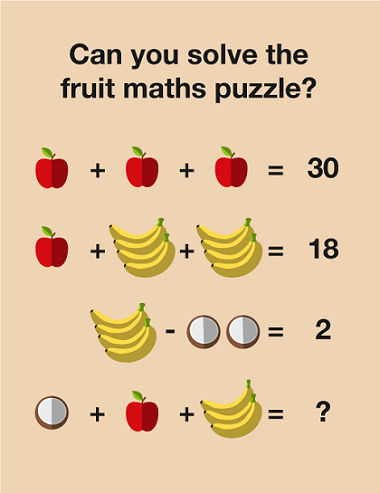1 Four operations
You will already be using the four operations in your daily life (whether you realise it or not). Everyday life requires you to carry out maths all the time; checking you’ve been given the correct change, working out how many packs of cakes you need for the children’s birthday party and splitting the bill in a restaurant are all examples that come to mind.
The four operations are addition, subtraction, multiplication and division. As Functional Skills exam papers allow the use of a calculator throughout, you do not need to be able to work out these calculations by hand but you do need to understand what each operation does and when to use it. At level 2, you will often be required to use more than one operation to answer a question.
- Addition (+)
- This operation is used when you want to find the total, or sum, of two or more amounts.
- Subtraction (−)
- This operation is used when you want to find the difference between two amounts or how much of something you have left after a quantity is used – for example, if you want to find the change owed after spending an amount of money.
- Multiplication (×)
- This operation is also used for totals and sums but when there is more than one of the same number – for example if you are buying five packs of apples that cost £1.20 each, you would do 5 × £1.20.
- Division (÷)
- Division is used when sharing or grouping items. For example, if you want to know how many doughnuts you can buy with £6 if one doughnut costs £1.50, you would do £6 ÷ £1.50.
Activity 1: Operation choice
Each of the four questions below uses one of the four operations. Match the operation to the question.
Two lists follow, match one item from the first with one item from the second. Each item can only be matched once. There are 4 items in each list.
Match each of the previous list items with an item from the following list:
a.You go to the local café and buy a coffee for £2.35, a tea for £1.40 and a croissant for £1.85. How much do you spend?
b.You need to save £306 for a holiday. You have 18 months to save up that much money. How much do you need to save per month?
c.Fourteen members of the same family go on holiday together. They each pay £155. What is the total cost of the holiday?
d.You make an insurance claim worth £18,950. The insurance company pays you £12,648. What is the difference between what you claimed and what you actually received?
- 1 = b,
- 2 = c,
- 3 = d,
- 4 = a





